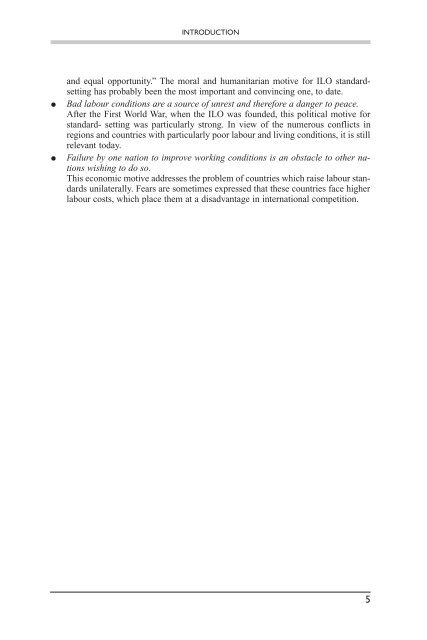Employers' Handbook on ILO Standards-related Activities
Employers' Handbook on ILO Standards-related Activities
Employers' Handbook on ILO Standards-related Activities
Create successful ePaper yourself
Turn your PDF publications into a flip-book with our unique Google optimized e-Paper software.
INTRODUCTION<br />
and equal opportunity.” The moral and humanitarian motive for <strong>ILO</strong> standardsetting<br />
has probably been the most important and c<strong>on</strong>vincing <strong>on</strong>e, to date.<br />
l Bad labour c<strong>on</strong>diti<strong>on</strong>s are a source of unrest and therefore a danger to peace.<br />
After the First World War, when the <strong>ILO</strong> was founded, this political motive for<br />
standard- setting was particularly str<strong>on</strong>g. In view of the numerous c<strong>on</strong>flicts in<br />
regi<strong>on</strong>s and countries with particularly poor labour and living c<strong>on</strong>diti<strong>on</strong>s, it is still<br />
relevant today.<br />
l Failure by <strong>on</strong>e nati<strong>on</strong> to improve working c<strong>on</strong>diti<strong>on</strong>s is an obstacle to other nati<strong>on</strong>s<br />
wishing to do so.<br />
This ec<strong>on</strong>omic motive addresses the problem of countries which raise labour standards<br />
unilaterally. Fears are sometimes expressed that these countries face higher<br />
labour costs, which place them at a disadvantage in internati<strong>on</strong>al competiti<strong>on</strong>.<br />
5

















